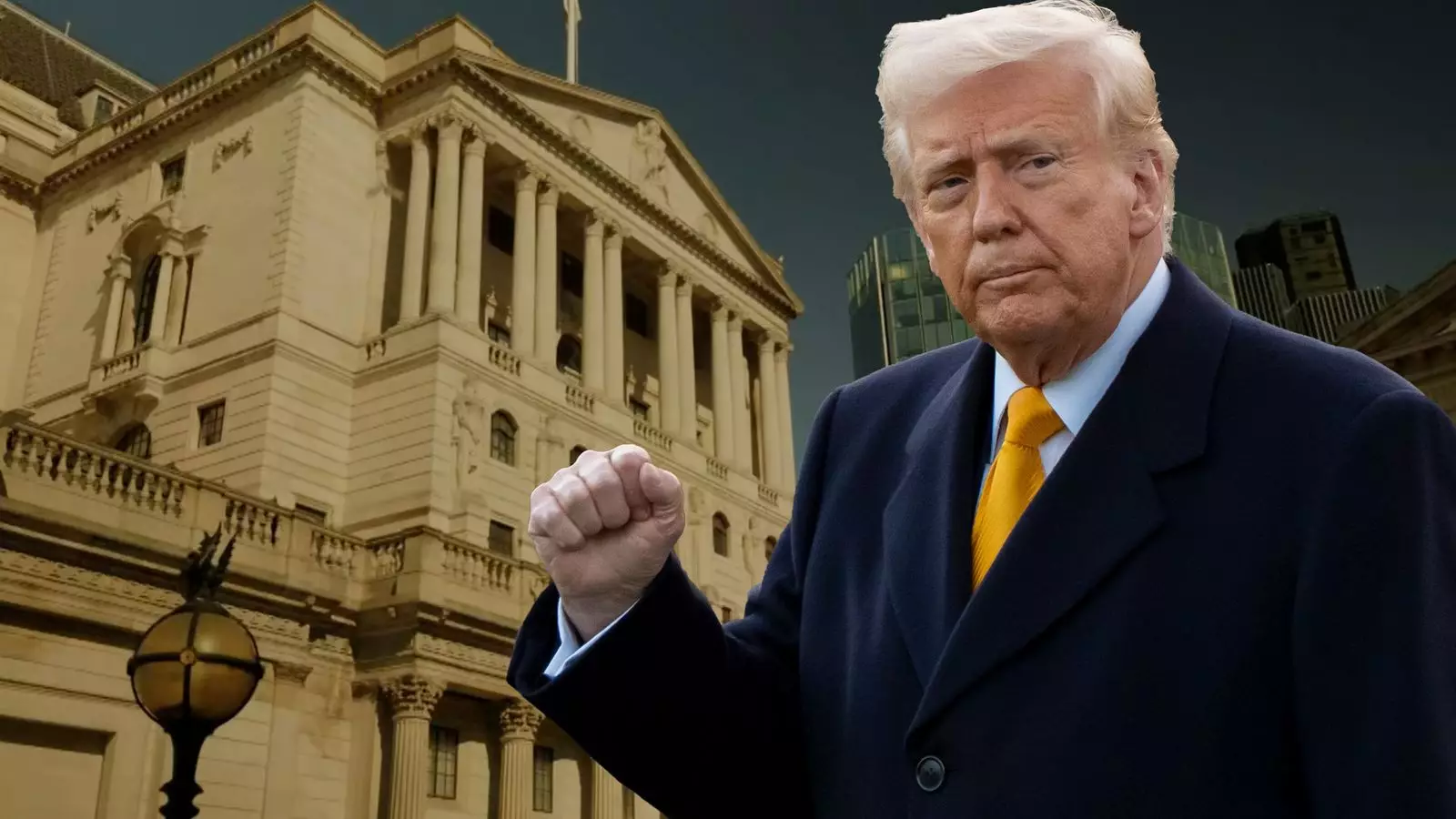Financial analysts are now unanimously fixated on the looming probability of a Bank of England interest rate cut, projected for May. This stems from a climate of uncertainty created by Donald Trump’s incessant trade wars, which are echoing through the corridors of global markets. The intrigue of this situation isn’t solely about potential interest cuts; it is also about understanding how the economic tremors instigated by a single leader can ripple out, impacting nations and their financial decisions.
Megan Greene, a member of the rate-setting committee, voiced her concerns succinctly: trade tariffs imposed by the U.S. are more likely to exert downward pressure on UK inflation than to provoke growth. This insight sheds light on a framework of thought that raises alarms regarding global capitalism. The expectation that the UK might become a repository for cheaper goods due to these tariffs raises pivotal questions about the true essence of free trade and its benefits—as it reveals a disturbing reliance on external forces to buffer our own market vulnerabilities.
Inflation: A Double-Edged Sword
While Greene suggests that the disinflationary pressures brought about by Trump’s policies could be a boon, we must tread carefully on this path. The complexities of inflation are laden with contradictions. Is it wise to anticipate a drop in inflation due to external market showers while our internal economy wades through a rise in energy prices and taxing burdens? It seems tantamount to expecting a sunbeam in a hailstorm. The reality is that inflation, when viewed through the warped lens of external variables, becomes difficult to wholly grasp.
A surge in the strength of the pound may offer temporary solace against rising costs, but can we genuinely ascertain its longevity? The uncertainty hangs heavy in the air, overshadowing the markets. The current predicament also forces the Bank into a corner: how do we combat rising inflation with potential rate cuts while still supporting economic growth? One could argue that we are caught in a dangerous cycle—a chess game played without a clear strategy.
If Only Trade Agreements Were That Simple
Chancellor Rachel Reeves’ journey to Washington casts a spotlight on the necessity of forging robust trade agreements. However, let’s not kid ourselves—these are fragile negotiations dictated by numerous variables. A mere pact cannot instantly dissolve the troublesome tariffs that are currently strangling the UK economy. The necessity for such agreements has become even more pronounced, especially when previous expectations have fallen prey to reality’s harsher terms.
The call for Chancellor Reeves to advocate for the abolition of tariffs feels almost quixotic; it underscores a broader crisis in international trade relations. Why should we be waiting with baited breath for foreign negotiations to rectify our homegrown economic situations? This reliance reveals a palpable weakness in the UK’s economic framework, a framework that should ideally be proactive rather than reactive.
Central Banks: A Tightrope Walk
The delicate act of balancing growth with inflation management is a tightrope walk for central banks globally. With the Bank of England contemplating easing rates, the path doesn’t seem straightforward. The situation mirrors that of the European Central Bank, which has already made aggressive cuts amid stagnated growth. Every decision molds the economic landscape, but the risk exists that such measures could become mere band-aids over growing wounds.
Furthermore, the situation poses profound implications for public sentiment. As international relations deteriorate and trade policies become fragmented, citizens remain skeptical of their government’s capacity to shield them from economic volatilities. The trade war, particularly one fueled by incendiary rhetoric and unpredictable policy shifts, has far-reaching consequences, driving a wedge of uncertainty into the heart of both business and consumer confidence.
The onus is increasingly on policymakers to navigate this tumultuous terrain thoughtfully—without losing sight of the socio-economic realities that blanket the general populace. The apparent recklessness with which top political figures approach financial stability belies the hard truths they gloss over. Economic growth should not come at the cost of the faith and resilience of the nation’s inhabitants. Amid these challenges, crafting sustainable solutions that transcend petty political squabbles is the only way forward.

